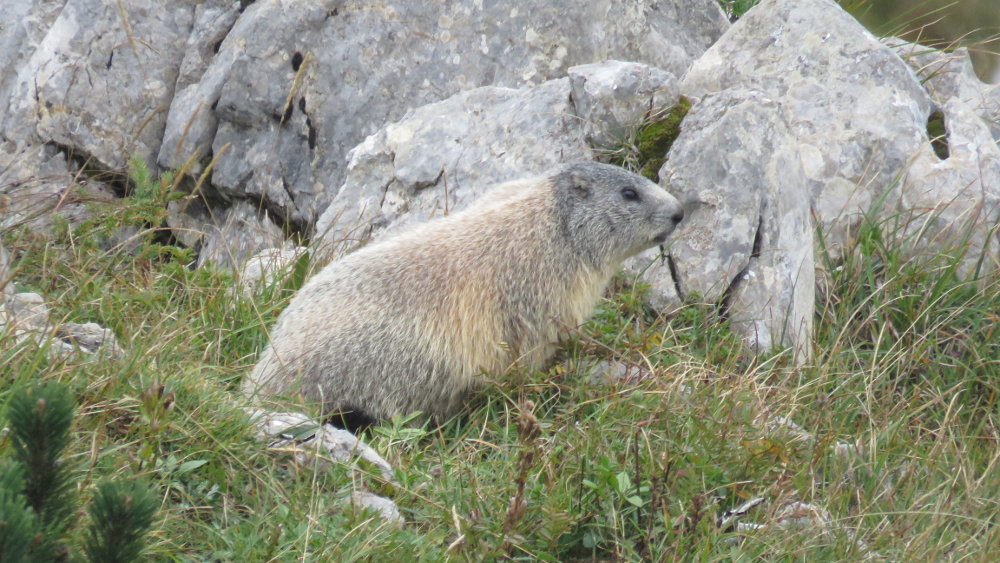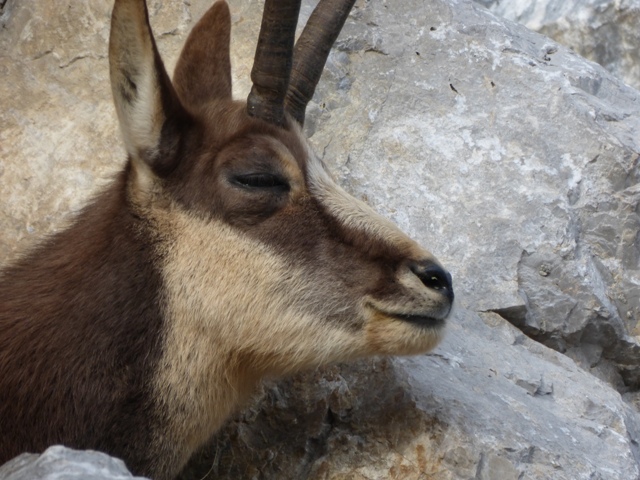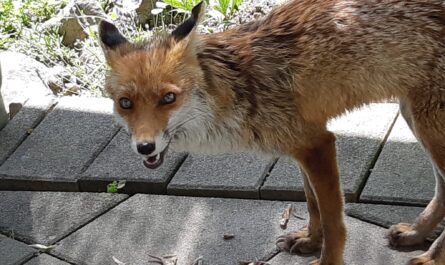Within the animal movement, a fraction is suddenly particularly concerned about not what humans do to non-human animals, but what a lion in need of food is doing to a zebra in order to survive. This approach is misguided in many ways. For a start, I consider myself part of the animal liberation movement, similar to the liberation movement of people of colour in the USA or of women worldwide. The issue is not the reduction of suffering in a liberation movement, but the liberation of beings of a certain group due to a suppressive ideology, be it racism, sexism or speciesism. The goal is for those beings to be able to govern their life independently of powerful interest groups, which solely exist in technological mass societies. Hence, animal liberation means the liberation of nonhumans from human suppression in such a society. Animal rights, which only exist in such societies and not outside, are a means to that end.
Generally, the idea of wildlife intervention is based on a utilitarian approach. The assumption is that there is a lot of suffering in the world and acting good means reducing overall suffering and enhancing overall happiness, never mind where it comes from. This approach is essentially a-political, it does not distinguish from suffering due to an avalanche accident for example, or due to a suppressive human regime. It appeals to the individual to be good and help, and not to society to be just and respect others autonomy and free will. As I have explained in my book, which has now been translated into English („The Dog and his Philosopher“), rational arguments led me to reject the utilitarian approach. Autonomy is according to philosopher Immanuel Kant the ability to self govern your own life, to set rules and goals for yourself, where nobody else can impose their own rules and interests over you. Autonomy has nothing to do with natural disasters or a restricted capability of acting due to causes outside of political suppression, like being incapable of flying. Liberation hence means that beings capable of autonomy can act freely and independently of political suppression. In my book I argue thoroughly that nonhuman animals of the kind of my dog friend, at least, are capable of autonomy in the Kantian sense. Hence, the animal movement must primarily aim for their liberation from political suppression by a technological mass society of humans.
But I have argued elsewhere, see https://martinballuch.com/most-wild-animals-are-happy-most-of-the-time/ and https://martinballuch.com/wildlife-suffering-wildlife-intervention/, that even from the utilitarian point of view of the reduction of suffering only, life in the wild is much preferable to life in a technological mass society. I briefly summarise the findings, for detailed arguments I refer to the above links:
- Even a vegan human or dog or cat living in a technological mass society is responsible for a lot more animal suffering than wild animals, essentially due to the vastly higher usage of energy than beings in the state of wilderness. For energy production, road traffic, concrete buildings, but also for so-called pest control in the cities as much as on the fields using pesticides, for the production of all goods ranging from plastic to electronics, for the destruction through machinery in the fields and in the woods, for subsedies of slaughter houses, animal factories and vivisection laboratories and so forth, every vegan member of a technological mass society is responsible for an infinitely higher amount of death and suffering than any wild living animal including humans ever could be.
- Life in the wild is set up, generally through evolution, to be satisfying and fulfilling. That is because all animals living now stem from animals, who have succeeded to procreate in a very long list of forbears, who must have all been happy and healthy enough in a similar environment to do exactly that. So, even if basically all animals die of a violent death in the wild, most of them have been happy most of the time.
- The reason for that can also be seen in comparison to life in a technological mass society. Members of that society work mostly in boring jobs most of the time, so that they have to restrict their lives to late evening and weekends. Wild animals, in contrast, can enjoy their life without non satisfying activities. Members of a technological mass societies hence strive for hedonistic pleasures in their little spare time. Technology has cut them off from tight social groups, due to isolating work conditions, as much as from problems usually occurring in the wild. Even more so in capitalist mass societies, where the rich get ever richer and the vast majority ever poorer. But hedonistic pleasures alone, as New Scientist recently explored, lead to frustration, loneliness and depression. Indeed, 47 % of the people in the UK are lonely always or most of the time. The WHO names depression as the highest rate of illness and the biggest threat to a healthy life. Even pet dogs and cats suffer mostly of depression, as New Scientist has published recently, so much so, that anti-depressants are the drugs used most often in veterinary care. Wild animals do not know those problems, they do not know suicide, stereotypical behaviour, alcoholism, drug abuse, diabetes, cardiovascular disease and cancer. Social animals are almost all the time in tight social groups and overcome together the problems of daily survival. It is this form of happiness after overcoming problems, the eudemonistic happiness in contrast to the hedonistic happiness, see https://martinballuch.com/warum-altruismus-kein-egoismus-ist-hedonistisches-und-eudaemonistisches-glueck/, that actually makes you feel satisfied with life. And a violent death due to predators is mostly not painful, due to a rush of adrenalin, that covers any pain feelings until the deed is done, if it is done fast enough.
- The worst of all fates do have farmed animals in a technological mass society. Invariably, they are politically suppressed and live in tightly confined conditions with the least amount of life support to yield maximum profit for their „owners“. Evolution has not prepared them for this fate, in the millions of years gone by, no animal was ever confined without any stimulation in such a small space, was not bred to be overweight and incapable of moving, was not chained and fed wrong diets to produce particular kinds of products, was not crammed into lorries and killed on a slaughter line. Most farmed animals are miserable most of the time. The by far hugest amount of suffering on the planet Earth has to be endured by those unfortunate creatures, for whom it would have been much better, they had never been born.



@Konrad
What do wild animals do, in order to survive in the wild? They look for food, like berries and mushrooms and plants, or they hunt. All strongly connected to lust and satisfaction. They socialise, have sex and children. All connected to lust and satisfaction. They defend their social group, also connected to strong feelings of “us against them”. They move around and use their bodily abilities. All these activities are connected to very postive feelings. Wild animals do only such things, they are never forced to do something boring or slave labour or the like. Humans in technological mass society, in contrast, mostly have to endure hours upon hours of mundane work most of the time. We are not made evolutionarily to sit in front of computers in an office all day, we are not made to do the same movement over and over again at a production line in a factory, we are not made to get up in the early hours to deliver newspapers or what have you. Especially, we humans have to do that mostly isolated from our social group. Work isolates, you have to move, have to take on work to survive even if you hate it. It might be that some people actually anjoy their work, but most people most definitely do not. In contrast to wild animals, who do what they thoroughly enjoy most of the time.
“Wild animals, in contrast, can enjoy their life without non satisfying activities.” I would challenge that claim. If I was banned outside society I would need to take care of a lot of things I would rather not have to take care of. I see no good reason why just surviving should in principle be more pleasant for other animals. Civilisation has it’s downsides but who would actually leave it when understanding the differences. Also, by far not all people in our modern society are most of the time unhappy. We actually can improve our subjective experiences a lot if we act mindfully.